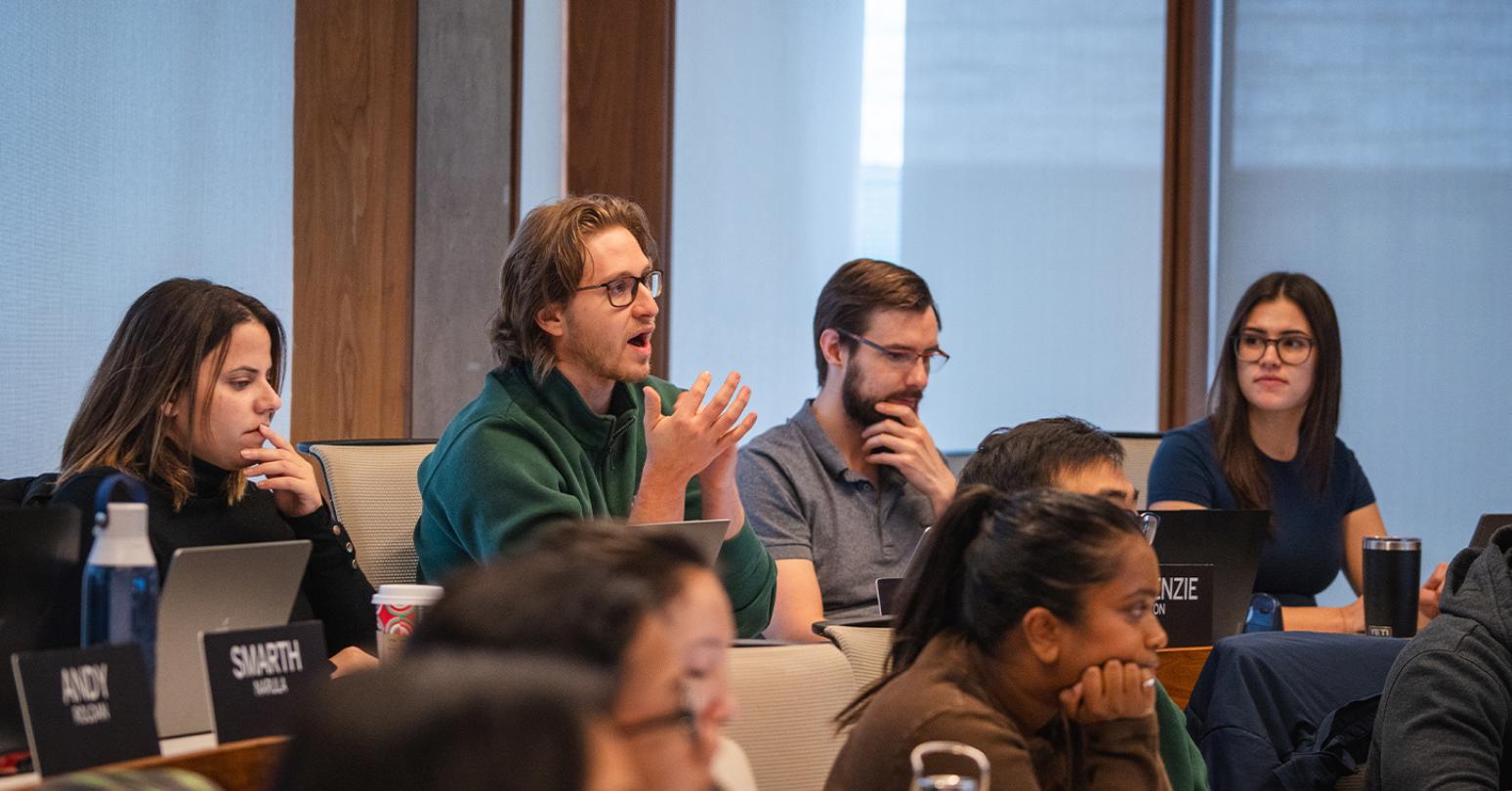As businesses become increasingly aware of environmental issues, a changing corporate landscape, and the demand for socially responsible investments, the significance of responsible governance continues to rise.
Related to this story
But, what does it mean to govern responsibly? It is a question explored in depth by students in the MBA elective, Responsible Governance.
Co-taught by Ivey faculty in Accounting, Finance, and Strategy, the course focuses on equipping students with a deeper understanding of how environmental, social, and governance (ESG) considerations factor into the investment process and sound business decision-making.
RBC Global Asset Management (RBC GAM) partnered with Ivey during the course’s inception five years ago, helping to develop course materials that engage, educate, and empower students in responsible investing.
“As a leading investment management firm, RBC GAM takes ESG issues seriously,” said Andrew Sweeney, Managing Director and Institutional Portfolio Manager at RBC GAM.
We recognize the role we can play in enhancing the functioning of capital markets. We are also proud to be associated with the Ivey Business School in developing the next generation of leaders. Helping in the development of a corporate governance case was a great way of bringing our real-world expertise into the classroom.”
Sweeney and Daniel Chornous, Chief Investment Officer at RBC GAM, recently joined Glenn Rowe, Professor of General Management & Strategy, and his Responsible Governance class to lead a case discussion. Students examined a case focusing on Magna International and the company’s controversial unification of its dual-class share structure in 2010.
Sweeney led the class through an engaging conversation around the governance and financial issues in the Magna International case, focusing on risks and benefits of dual-class shares, board responsibilities, and shareholder fairness. Students had the opportunity to critique governance practices, highlight regulatory concerns, and discuss ESG considerations.
The class then participated in a Q&A session with Chornous, where he considered the challenges with dual-class shares, pointed out conflicts of interest and governance issues, and examined the role of leadership and collective engagement.
“I have really enjoyed teaching the case over the last four years,” said Sweeney. “It is an exciting challenge to teach the students. The case method always leads to a tremendous discussion. This case, in particular, brings out a great discussion and challenges the students to think broadly about governance, financial analysis, and ESG issues.”



